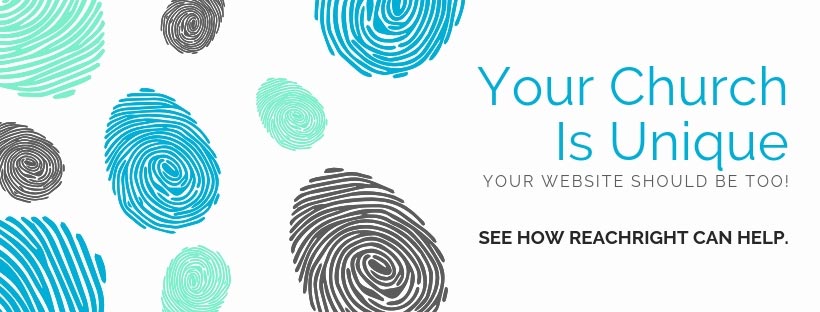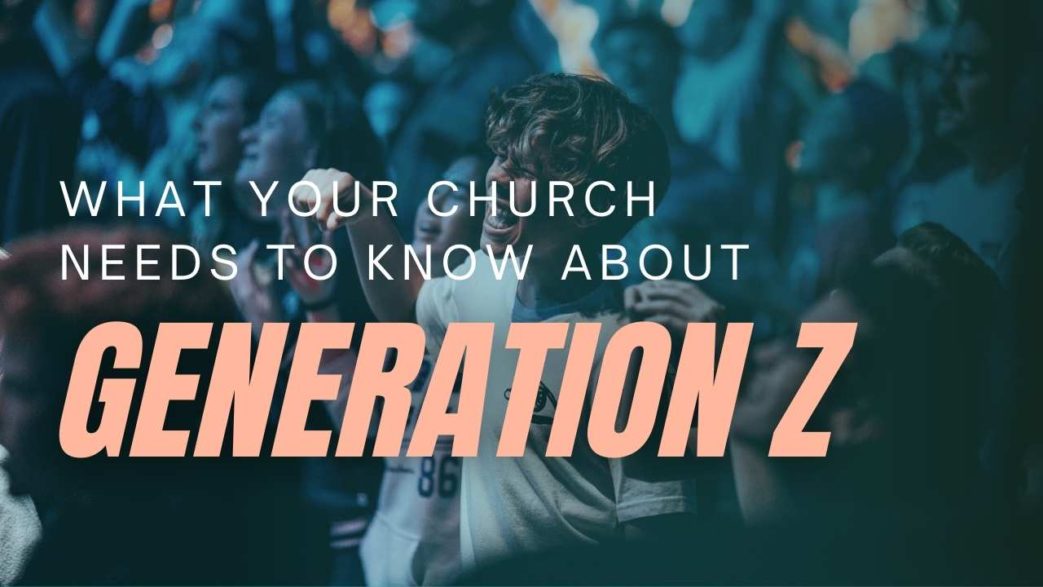Gen Z are already busy making their mark on the world, but does your church understand them and what they’re looking for in a church?
This generation ranges from those born between 1996 and the early 2010s, though as with every generation the exact range varies. Some of this generation may currently be in your church with their parents.
Growing your church long term means working to engage each new generation. If you’re missing out on these members, take the time to better understand Generation Z.

Screens Are Their World
Gen Z has never known a time without the Internet. Even as babies, they’ve likely had access to a smartphone or tablet to play with, though the older ones may still remember flip phones. As a comparison, older millennials grew up when dial-up wasn’t even readily available and their first social network was MySpace.
Since Gen Z starts with people born in 1999, the Internet has always been a major factor. Now, this generation is filled with teenagers who control the direction of what’s trendy online, which social networks are the most popular and even the future of technology in general.
If you don’t take away anything else from this post, remember this. If your church isn’t online, this generation won’t engage with you nearly as well. You need both a website and a social media presence. Even more important, you need to remain active online or they’ll move on to something more engaging.
They’re More Uncertain
A common trend among church statistics is fewer people are attending church regularly. This is true among Gen Z as well. This generation has one characteristic that both helps and hurts them – they’ve far more inclusive than previous generations.
On one hand, this makes them far more accepting of people, ideas and opinions that are different than theirs. This is a good thing. They’re more likely to have a conversation about faith without judgement.
However, these good intentions to be open minded sometimes go too far and leave them feeling uncertain. This makes it harder for them to accept someone telling them a certain action or lifestyle is wrong. As Biola University put it, they have a much more “flexible moral compass.”
When it comes to church, this generation might feel too restricted. Of course, this is why they need the guidance of a church even more.
They Crave Role Models
There’s a reason the social media influencer trend has exploded so much in the past several years – Gen Z craves role models. Of course, they also use technology as a way to feel accepted (more on that later).
Based on 2015 census data, there are 22.4 million kids being raised by single parent households. The traditional family model isn’t a prevalent as it once was, which can make it harder for this generation to be as close to their parents as they want.
As a result, they look for role models. These could be athletes, actors, musicians, politicians, social media influencers and anyone else who makes a connection with them.
Your church could serve as a role model. However, you have to learn to connect them. The best way is a mixture of technology and face-to-face interactions.

Social Media Impacts Their Lives
As the first completely digital generation (millennials claim this title, but most were born before the Internet was mainstream), social media has a major impact on Gen Z. They use it to connect with friends, support causes they’re passionate about, read the news, play games, shop and much more.
Among some of the many statistics on how Gen Z uses the Internet, their social media usage is something your church really needs to know about. One thing that becomes quickly obvious from the following is social media is key to connecting with this generation:
- Gen Z uses social media for nearly three hours daily, which is longer than millennials
- 55% of them feel social media helps them better express themselves creatively
- 54% say social media influences their decisions more than other online channels
- Over 76% follow at least one social media influencer
- 43% of Gen Z teens feel they should only post content that makes them look good to their followers
- 81% feel social media helps them connect
- 45% believe there’s still too much drama
Of course, it’s also important to know which social networks are their favorite. As you might have noticed, social media trends change often, with teens usually paving the way to what the next big thing is. So, it shouldn’t come as a surprise that Gen Z isn’t exactly in love with Facebook.
In fact, 65% check Instagram daily, while 62% check YouTube. These are the top social media sites for this generation. The two next closest are Snapchat at 51% and Facebook at 34%, nearly half of Instagram.
The lesson here – your church may want to consider learning to use Instagram to better reach this generation.
Gen Z Is Lonely
Despite being the more digitally connected generation, Gen Z is considered the loneliest generation. However, the loneliness levels don’t really differ much between those using social media often and those using it more infrequently.
Due to less connected neighborhoods, busy parents, school bullying, less church attendance and a variety of more isolation issues, this generation has fewer opportunities to make meaningful connections with others. Yes, they might follow people online, but these people aren’t always their friends.
The big problem is whether using social media or not, Gen Z would rather communicate digitally than in-person. This also means they go out less. Without opportunities to push them into getting off their phones and talking face-to-face, they’re actually far less connected than they believe.
Creating church programs that invite teens to come together, even if they’re not church members, is a great way to connect with this generation in your area. You could even start out with video chat groups online to get them more interested and reach those who aren’t able to attend in person.
Video Is Better Than Text
While Gen Z does read blogs and social media posts, they’d much rather watch videos. In fact, video is popular among all generations, though more so with this generation.
The one network all generations seem to agree on though is YouTube, with the following weekly usage statistics by generation:
- Generation Z – 89%
- Millennials – 86%
- Generation X – 68%
- Baby Boomers – 52%
Another study backs up the claim that teens love videos with 85% of those surveyed using YouTube regularly. Instagram was their next favorite network, which is highly visual as well.
Knowing teens love watching videos over reading blogs is great, but your church also needs to know what kind of content they love best. While funny videos are always popular, Google found teens use YouTube to learn new things.
In fact, 80% used YouTube videos to improve general knowledge, while 68% helped them gain new skills. These could range from everything to makeup tips to how to prepare taxes.
It’s not just about learning though. Google also found teens feel more connected when watching videos, especially when created by those closer to their age. They use videos to destress and even help them study.
Not only should your church try to create videos to connect with Gen Z, but also create videos they’ll want to share with their friends and family. This creates a cross-generational experience, bringing everyone closer together.

Give Them Something To Do
Based on their affinity for videos, you’d think this generation would prefer to just listen. However, they’re a more hands-on generation. A simple sermon may not be enough to keep them engaged. As the oldest of this generation is currently in college, experts have found they learn much better through doing versus listening.
This is actually good news for your church. You have an entire generation that wants to take action versus just listening to how others have taken action.
The key is to give them something to do. Tie technology into your weekly sermons. Allow them to ask questions, take pictures and even create Instagram stories based on videos, quotes and questions to share with their followers. They’ll likely remember more and help share their faith with others.
Even more important is you have a generation that wants to practice what they preach, so to speak. Create volunteer opportunities that tie in to the causes that are most important to them. Then, as you teach them, talk about the volunteer opportunities, what volunteers are currently doing and how that’s affecting your local community. This gives them a hands-on way to practice what they’re learning in church.
They’re Stressed And Anxious
It’s impossible to deny how bad things are in the world sometimes. Plus, this constantly connected generation is being bombarded with news (both text and video) about every terrible thing that happens. Some teens are even terrified to go to school for fear of another mass school shooting.
It’s so bad that Gen Z currently has the worst mental health out of previous generations. Sadly, 91% of those surveyed said they’d felt so stressed they had emotional and physical symptoms. Even as teens, they’re having to deal with heavy emotional issues, such as anxiety and depression.
This generation finds it hard to tune out all that’s going on. So, it just compounds their stress. While millennials reported feeling slightly more stressed overall, their younger counterparts reported higher levels in many of the survey categories.
Sadly, all this stress has led to higher suicide rates among this generation’s teens. Churches have the power to help with this. Use social media, including YouTube, to spread more positive and hopeful messages. Provide actionable tips on how to manage stress. You can even post sermons just for this generation targeting the daily issues and stresses they face.

They Want Someone To Trust
While they don’t always pick the right people to look up to, Gen Z just wants to connect with someone they can trust. This is why they often love social media influencers. They see influencers going about their daily lives, sharing their true stories and facing the same issues as they do. To them, these influencers are authentic and trustworthy.
In fact, over half of them feel it’s cool to stay true one’s values and beliefs. So, if they sense someone’s not being authentic, they’re not going to engage.
What does this mean for your church? Be authentic. Don’t be afraid to share stories of when you’ve been led astray. Then, you get to share how your faith guided you back to where you needed to be. Gen Z is much more accepting of people who are honest and even imperfect.
Be honest about who you are and who your members are. Consider creating a confessional-style YouTube series for this generation to connect with. Knowing that your church is authentic and fully accepts people who’ve made mistakes makes them more interested.
They Want Guidance On What’s Current
Gen Z doesn’t just want general guidance or to just be told to do the right thing. They want specific guidance on how to deal with current issues. Instead of just teaching the Bible, connect what’s in the Bible with what this generation is currently facing.
Address your sermons to all generations and the issues they deal with. It’ll make your messages clearer and inspire your members more.
Plus, when you start posting sermon online and sharing snippets on social media, Gen Z takes notice. They start paying attention to your guidance. This gives your church a chance to start building a relationship with them, guiding them into becoming a part of your church.
They Like Causes
If you pay attention to social media, you’ll likely see Gen Z posting about the various causes they’re passionate about. They also prefer churches who are just as passionate about making a difference in the world.
Analyze what this generation is talking about and find ways to create relevant volunteer opportunities. When Gen Z looks for a church, they want one where they can get involved and make a difference. Equip them to do just that. They can even help you create videos to better connect with this generation. In fact, any Generation Z members in your church could become the next influencer guiding others on their faith-based journies.
Want to better connect with Gen Z? Start by establishing an online presence to help them find you. Contact us today to learn how we can help.




